Executive Interviews
Our Executive Interviews feature top leaders from across the disciplines that we specialise in, sharing their career advice and experience with candidates seeking success in those sectors.
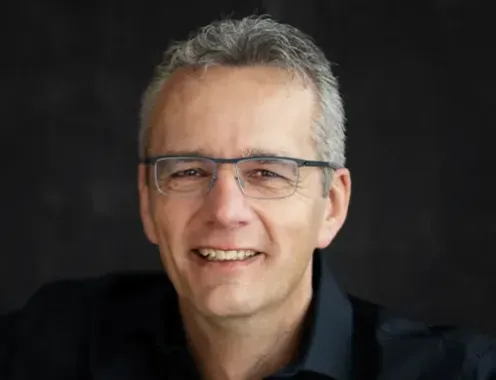
Willem Krul - Global Accounting & Reporting Director at JDE Peet's
Willem Krul has been Global Accounting & Reporting Director at JDE Peet’s since 2012. JDE Peet’s is the world's leading owner of coffee and tea brands, serving around 4,200 cups per second.
Here, Willem reflects on the streamlining of recruitment processes over the course of his career, how taking a risk can pay off in the long run, and that awkward feeling of being the “new guy” in the office after leaving a company you know inside out.
What changes have you seen in the employment market in the Netherlands over the years and what are the key drivers for these changes?
From the point of view of candidates, I don’t see a lot of changes. Generally speaking, people go into an organisation, stay for three to five years, and then move on.
The biggest changes have been to companies’ internal processes. In the past, it would be managers alone who’d interview five or so candidates and make their selections based on those interviews (and probably a degree of gut feel, too).
These days, HR - especially the recruitment departments within HR (if you’re a big enough company to have that luxury!) - has professionalised the whole process and made it a lot more thorough.
For every opening at JDE Peet’s, there’ll be a properly graded, group-approved and externally benchmarked job description, with pre-screening selection criteria that enable our recruitment department to identify the best candidates out of the many applicants before sending their CVs onto managers.
Then, we’ll usually do an assessment to check the person’s competencies, and sometimes the applicant will get an unscheduled call from us with a few questions just to get a feel for how prepared they are without any preparation! It’s a useful way to gauge how motivated a candidate is, how much research they’ve done on the role and the company, and ultimately how much they want to work for us.
Investing this kind of time and diligence into the recruitment process makes it far less likely that you’ll employ someone, only to have to let them go after a month or two because they’re not quite the right fit. And that’s not just better for companies; it’s better for and more respectful to candidates, as well.
What measures has JDE Peet’s put in place to retain high potential employees?
As part of our annual appraisals, we score members of our team and calibrate those scores by asking colleagues in other departments to do the same. This gives us a broader perspective on the individual and helps avoid the bias that you naturally have with your own team.
We also rank talent using the nine-box model, a tool that helps us categorise and compare employees’ performance and potential. This means that, when a new (senior) role becomes available, we’re able to identify and promote the top talent we already have.
You’ve had an enviable career within a prestigious firm. What risks have you taken to reach the level you’re at today?
I’d have to go back to my KPMG days back in the ‘90s. I wasn’t an auditor; my job was to compile financial statements for small business owners. We had an engagement with an oil company who had some interest rate swaps. They wanted monthly reports on receiving fixed interest rates and paying floating, etc. Honestly, I didn’t know a lot about any of it! I just followed the process my predecessor set up and did everything I could to learn on the job.
Suddenly, a large international client, Montell, which was a newly created joint-venture of Shell and an Italian company in the chemical industry, came along and they wanted us to do their accounts.
They invited a KPMG partner to come in and discuss the set-up of the accounting. When the subject of interest rate swaps came up, he said: “Willem knows all about that!” The next thing I knew, I was in front of the customer having been used to work on accounts for small numbers, but now dealing with big numbers - billions and billions. It was mind-boggling. I had to buy a new calculator (remember, we are still in the ‘90s) to fit in all the zeros!
At the end of the day, though, numbers are numbers. And, although I was less experienced in this area, I knew just about enough, I had the backing of a colleague who believed in me, and I loved working in an international environment.
Eventually, an opening came up for a consolidation and reporting role. That was my move out of the Big 4 into Montell (now LyondellBasell Industries), where I went on to grow my career for the next 14 years. So, the risk paid off!
How did you plan your career development path?
It’s simple - I didn’t! Yes, you need to take ownership of your career path, but no one can be sure of what’s around the corner. You must weigh up new opportunities based on what’s happening in the here and now, on what you love doing, and you have to be brave.
When I made the move from LyondellBasell to Provimi after almost a decade-and-a-half, it wasn’t easy. Suddenly, even though I was 40 years old, I was the new guy. I didn’t even know how the coffee machine worked, let alone the financials! But that feeling is only temporary.
When I moved on again to JDE Peet's, the transition was much easier, because I’d already gone through that big change just three years earlier. It was a huge learning curve.
My career path has also been influenced by changes that have happened around me - changes I could never have predicted when I started in each role. For example, Montell merged into Basell, and a few years later Basell merged with Lyondell into LyondellBasell Industries, which at that time was a very centralised, American-style company. I didn’t feel at home and took the decision to leave. History repeated when Provimi was taken over by Cargill.
When I joined JDE Peet’s, revenue was 2.5 billion. Now, it’s over eight billion. So, change is constant, and how I’ve responded to that change has dictated the direction of my career.
I also love what I do, I know my skillset and I know where my dreams lie. For some people, it’s all about diversifying and then aiming for those top CFO roles. My dream is doing the very best job I can in a position that plays to my strengths in a setting I like. And I feel lucky that my role right now with JDE Peet’s allows me to do just that.
If you could go back in time and give your younger self some advice, what would it be?
I’d probably repeat the advice my father gave to me and my brother: It doesn’t matter what you study, as long as you study. University-level education gives you a certain mindset, and an approach to problem solving that serves you throughout your life and work, no matter what you end up doing as a career.
What do you think will be the biggest challenges facing you in your role at JDE Peet's over the coming year?
One is retention, keeping hold of the talent in our team, so we don’t have the challenges of recruiting in a very tight market.
The other big challenge from an accounting perspective is the shift we’ve had to make from the financial to the non-financial space, in the form of sustainability reporting - something that’s quite new for us. It’s a good challenge to have, though, the right thing to do for us and for society as a whole. As with any change, we’ll learn, and we’ll adapt, and we’ll become all the stronger for doing so.
Thank you to Willem for speaking to our Finance & Accountancy recruitment team in the Netherlands, led by Hannah Mallia and David Harper.
Views and opinions contained within our Executive Interviews are those of the interviewee and not views shared by EMEA Recruitment.
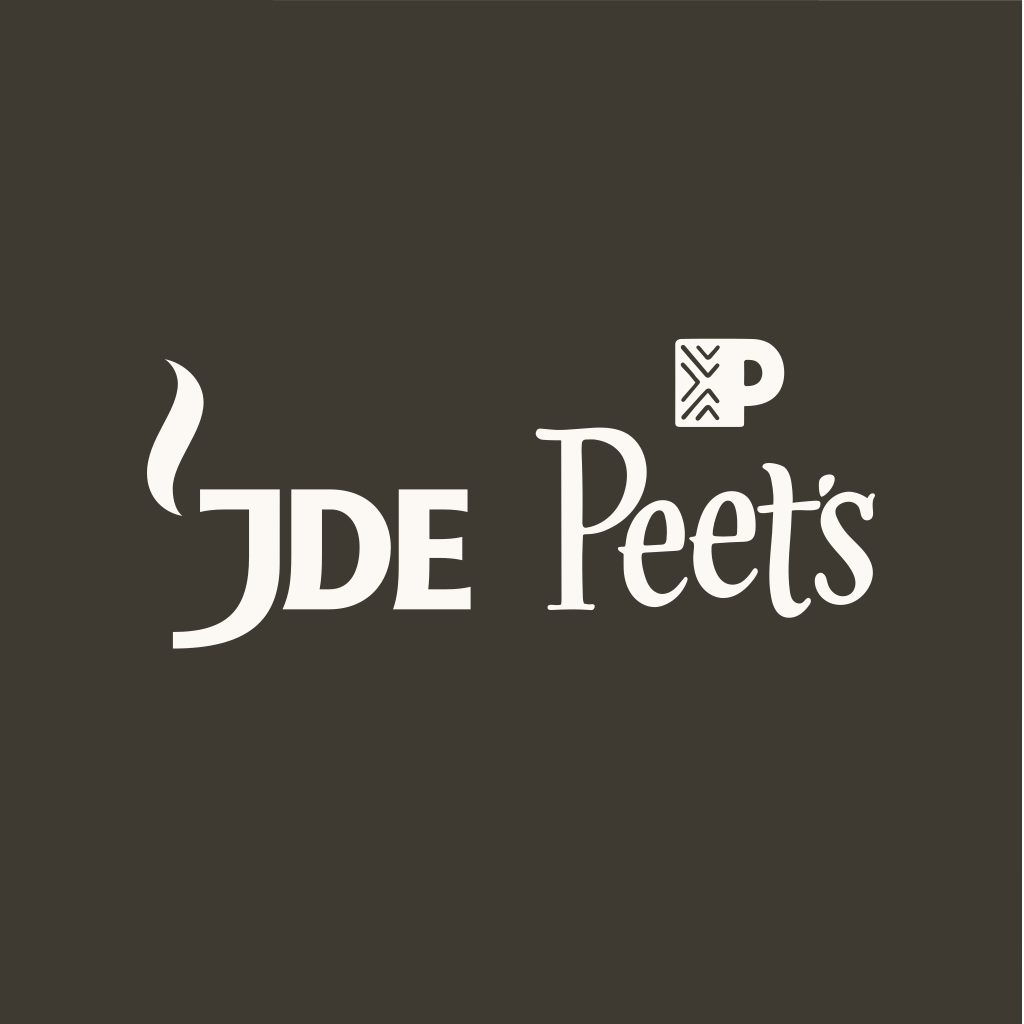
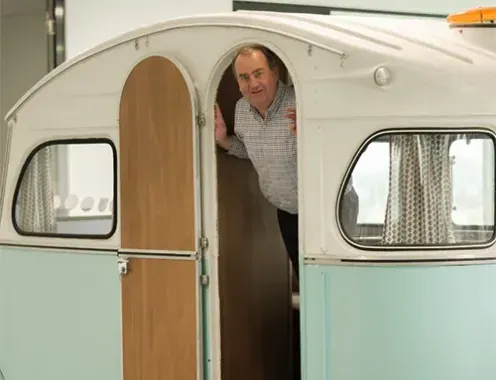
Alrik Boonstra - CHRO at Roompot
Alrik Boonstra is the CHRO for Roompot, which will be after the announced acquisition of Landal GreenParks, the leading provider of holiday resorts in Europe. He joined early in 2023 from the role of Global SVP Human Resources at Irdeto in Amsterdam. Alrik started his career in consulting, before moving into Sales & Marketing at Unilever. He went on to join PepsiCo and became a Managing Director and Partner at Korn Ferry Hay Group, where he spent almost 12 years.
What excites you about the culture of an organization?
When you look at Irdeto, it has a truly international and very diverse culture - and they celebrate that diversity. They're very curious about learning from other nationalities and cultures; there is no one country or dominant culture, which you would often see in some international companies.
Also, Irdeto is a true culture of empowerment in combination with accountability. The reason they have that empowerment and accountability in their culture is because it's so geographically dispersed, with 20 locations. All of them are relatively small, so it's impossible to actually manage that from a headquarters. You therefore must empower your leaders. You have to empower your teams and you have to instil trust. So, the accountability plus empowerment plus trust - that's really deep in their culture.
Roompot is different. It has a very entrepreneurial, down to earth culture with a less is more mentality. At Roompot, we celebrate that we are not a corporate in the classical sense with lots of meetings and processes.
From a broader perspective, what are the things that you think are really important when you're trying to retain talent in a business?
I believe, based on lots of research, that people don't leave companies, they leave bosses. The feeling of belonging and having a connection with your manager and with your peers is essential.
It’s important for a company to ask, on a regular basis: what is your relationship with your manager? We see that asking that question is the best predictor of people staying with the company for a longer period. Building that relationship with your manager is crucial, such as building relationships across the company, having peers - buddies, as we sometimes call it.
So, I am very much an advocate of peer-to-peer learning, mentoring and coaching, because it's all geared towards building deeper, meaningful relationships in the company to create a sense of community where people really feel connected to each other. I think that's even more important than feeling connected to the company and its mission and strategy. I’ve learned that tech companies are typically very good at building cross-functional, international, non-hierarchical relationships.
Ultimately, those interpersonal relationships will, of course, lead to commitment to the company. But, at the end of the day, people don't necessarily choose companies anymore. They choose to work for certain people who they relate to and let their choice be determined by a set of more moral values they’d like to experience in the organisation. For us, as HR professionals, it's really important to understand and build programs around.
If you start recruiting for a business, you want to understand the business, the business model and the kind of company you're recruiting for. However, I think it's becoming more and more important that you understand the leadership culture. That's where the recruitment businesses come into play, because that's something you cannot put into an advert on LinkedIn, since it’s all about setting people up for a deep interpersonal connection - the famous chemistry between a leader and his or her team.
We also have to be humble, realistic and ensure that the basics are right, as well. It’s great to create that amazing culture, that community feeling, but - at the same time - people want to have the basics right. They want their pay, short-term incentives and long-term incentives to be right, that’s – as HR – our license to operate.
I fully understand that people need that kind of stability, particularly in those times of high inflation that we are experiencing right now - that all contributes to the employee experience. The employee experience is determined by the basics, and all the other things are the cream on top of the cake.
Where do you think HR adds most value to an organisation?
The People agenda is in the hands of the line managers and many CEOs these days, if not all CEOs. They're talking about people all day long, because they now truly understand and believe that people make a difference to the value they create in the market, and to their clients.
As HR, we need to help support line managers and, in particular, the CEO to navigate that People agenda and deliver on it, and we need to build a strategy that creates business value through people. I think that’s one of the most important tasks of a CHRO - creating business value, instead of managing the costs of human capital, which I still often see.
It’s not just setting the scene and building this strategy; it's also making the strategy reality, and I think that's actually the hardest part. Talking about talent is great, but implementing true talent plans, succession plans, development plans is hard work, and that's where the HR team can add a lot of value to the business and to the shareholders. PE companies taught me they really understand that great talent can create business value, so they focus – more than I expected – on building talent pipelines and connecting great leaders in their portfolio companies to learn from each other and accelerate their development.
To create value through talent, it’s important to be the coach and navigator; but, first, HR must develop a deep understanding of what drives the business and where value is created in an organisation, and you can then focus your HR efforts there. This business driver analysis is often overlooked by HR people, but I believe that’s rapidly changing.
As I said before, get the basics rights; the foundations need to be in place. I always call my People Operations team - a soft sounding machine in the background - you don’t hear it until it’s broken, so you better ensure it doesn’t break!
If the basics are not right, I don't have a license to operate in the more strategic domains of the business. So, that's always what I try to do: get the basic rights, get the cake right, and then start building some icing on the cake to make that amazing cake we all love to eat.
How do you see the function evolving?
You can often predict the future by looking into today. Today, people have become one of the most critical assets to deliver on business strategy; having the right people in place in the right positions is going to give you a competitive advantage. It's always been like that, but - in the past - it was easier to replace or fill some gaps from the outside markets. Today, that’s more difficult.
If we don't have the right people in the right place, we're not able to deliver to our clients, our guests, and our stakeholders. So, when you talk about the evolution of HR, I think it’s becoming more and more clear that HR is going to be the strategic function in the organisation to create a competitive advantage through one of the most strategic assets a company has - its people.
In recent history, the CFO has been the right-hand person to the CEO, because there’s been a huge focus on money and investments. What I see in the next five to ten years - but I also see it happening right now – is the CHRO becoming a very important part of that group. Because, at the end of the day, money and people are the oxygen of the business – and, when you put oxygen into an organisation, it can start to grow.
So, more than ever before, Finance and HR are becoming closely connected, which makes it even more important for HR professionals to have strong financial acumen and use HR analytics to talk in that language.
In my former job, when we developed an HR analytics strategy and an HR analytics dashboard, we also engaged people from the Marketing Research department to help build it. This demonstrates that HR is not a separate function anymore, and - in the future - we will share lots of resources and skills with other corporate teams. I believe we need to break down the traditional silos between teams and, in particular, between the corporate functions and the business teams.
So, the evolution of HR will be more strategic, more data driven, more connected with other teams and, by doing that, you deserve your seat in the boardroom. At the same time, I expect organisations to become more human, more empathic. HR has a role to play in this humanization process, as well. It’s not either strategic and value focussed or human - it’s both.
I want to ask about how your career started and evolved. You were in FMCG Sales and Marketing, and then there was the transition into the HR discipline. What prompted that change?
I had just graduated and applied for a role as an HR Business Partner in Unilever. When I started the interview with the HR Director, within five minutes, they said: “You shouldn’t go forward for an HRBP role. If you want to be a really great HR person, you’ve got to learn how the business operates and how it generates money, and - in Unilever - that means working in Marketing & Sales.”
In the interview, the HR Director picked up the phone to the Sales Director and said: “I have a guy here who wants to become an HRBP, but I think it's much better for him to actually speak with you and first learn how to sell soap, detergents, personal care products…” So, that's how it started.
When I moved into Sales & Marketing, I developed a deep understanding of what drove the business, which allowed me to become a better support, coach, and guide to the business on the People agenda. It was a great experience, and it was one of the best times in my career, where I also learnt a huge amount.
Sometimes, I tell recruiters I’m working with I’d really love to see two candidates in the long list with highly diverse backgrounds, who really have a passion to move into HR; one of the best HRBPs I’ve had in my teams was a former Financial Controller. I love to hire for potential and learning agility, not for a certain CV with an amazing business school.
This has also been a shift; hiring managers are more open to hiring for skills, rather than direct experience. There are front-runners doing it now, and that will accelerate in the next three to five years.
Do you have a personal highlight from your career that stands out to you?
The part of my career that was an important transition for me was the move from my consulting over to the other side of the table to become a CHRO.
It was a really big step for me, and I learned a lot - it made me so humble. All the consulting, conceptual reports, and slick presentations we did, we always felt like it was so easy to get it done. What I learned in my first year as a CHRO was that it requires a lot of time and grit to actually implement it. It was really blood, sweat and tears.
Who’s been the biggest inspiration in your life, whether that's in business or in your personal life?
I thought about it and there's not really one person. I'm inspired by many people on a daily basis. An example would be my former US boss, who was really amazing in terms of giving feedback on a continuous basis. Now, everybody is talking about continuous feedback cycles; at that time, he just did it in a very natural way to the people working in operational roles in a business.
In my former job in a food retail company, I came across so many inspirational people working in the stores. They were so curious about how to develop themselves - not necessarily through university or colleges - but people who just want to learn on a daily basis, and they were so open to feedback.
At the end of the day, it's not about big MBAs . To me, it's about learning new skills or being curious and trying to be a little bit better at the end of the day than you were at the start of the day. That's what was very inspirational to me.
Finally, at Irdeto, working with a lot of Software Engineers - extremely smart people - what I learned from them, and which is really inspirational to me, is that you need to approach things with a certain level of logic. They taught me how to structure my stories and to ask questions, like, what problem are we trying to solve here? which is how you can really add value.
Have you been able to achieve work-life balance? Do you have any tips for people that you know are trying to reach that point?
I struggled with this, like everybody, especially because I think work and life are so intertwined these days.
For me, the most important thing is to actually think about what gives me energy and what takes energy away from me. It's both in personal life, as well as in business life, learning what actually drives the energy level in my own battery on a daily basis.
Of course, we all have to do things we don’t like to do, but it’s important to be conscious of balancing those with things that give that energy back and making decisions about what I do day-to-day based on that.
Did I crack it? To a certain extent, because I do feel balanced in general, but of course I do struggle with it at times. There are weeks where I say to myself, what did I do this week? It's all energy-draining stuff, and then I need the weekend to really recover, spending time with family and friends.
Finally, it’s really important to have fun in my work and to have connections with people. I learned over the years that the content of the role is actually less important to me than the context, the people you work with, and the culture and values you operate in.
A role may tick the boxes in terms of strategic positioning, highly complex projects, but that's not enough. For me, the best HR role is the role where I feel connected to the people around me on a personal level, and where we can have fun while we work - this really drives my energy. If you’re full of energy, you can move mountains. It took me 25 years to figure that out, and I’m glad I did in the end, so it’s never too late to learn…
That’s hopefully how I can maintain that work-life balance, which ultimately is all about life balance, because work is part of my life and life is part of my work.
Thank you to Alrik for speaking to Katie Insley, Associate Director in our HR recruitment team in the Netherlands.
Views and opinions contained within our Executive Interviews are those of the interviewee and not views shared by EMEA Recruitment.
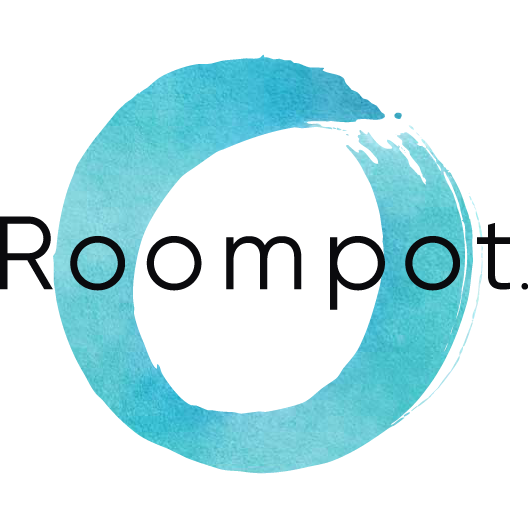
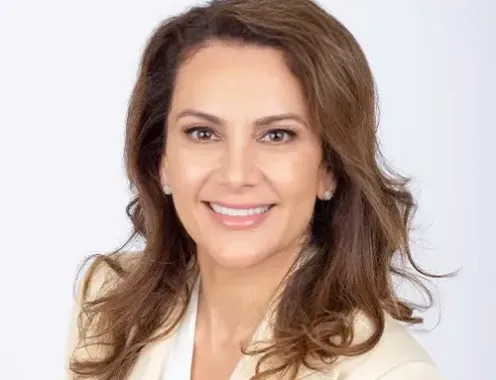
Patricia Erazo - Consultant CFO & Business Partner at Mattel
Patricia Erazo is a Consultant CFO & Business Partner currently working for multi-national toy manufacturer, Mattel. Curious, creative, and cohesive, Patricia shares her secrets to building trust within teams, encouraging a positive approach to change and what childhood trips to the market in El Salvador taught her about succeeding in business.
What’s the most rewarding part of your role at Mattel?
For me, the greatest rewards in any profession come when passion and purpose go hand in hand.
Purpose is outward looking – it’s about the value you can bring to a person, an organisation, an activity, or your co-workers.
Passion is more inward – it’s what makes us feel happy and fulfilled.
What I love about my role at Mattel is that it allows me to work at that place where purpose is fuelled by passion. That means I can bring energy, enthusiasm, and creativity to the work we do each day, and it’s when I’m my best that I can give the best to my teams.
It's an ethos and approach that ultimately contributes to profitability, because when people are given the space to ask questions, showcase their expertise, work in new ways, and find their own solutions to processes or inefficiencies, you can see them light up. They become more engaged, more empowered, more open minded and they perform better. They stop being afraid to make mistakes in the pursuit of something better. When you can achieve that, everyone wins.
What are the biggest challenges for Mattel and for your role in the company over the coming year?
A struggle that Mattel shares with most businesses in our current economy is the challenge of finding the best talent and then keeping hold of them. We have to show people, as a company, what we can bring to them.
Consumers also have more choice than they’ve ever had. During the COVID lockdowns, people got used to an elevated level of service – next day or even same day delivery, for example. Because they have choice, they expect the very best from the products they buy. What the past couple of years has taught us is that you need to be flexible, and you need to take risks. You can’t stay comfortable and grow.
For example, Mattel isn’t known for filmmaking. So, the Barbie movie, which comes out in July, is one of those risks. They’re also doing NFTs with collectibles – again, branching out into a whole new market they haven’t historically been in. But that’s the challenge for companies of any scale, figuring out ways to find new opportunities and navigating employees’ response to that.
Most people aren’t fond of change. It’s very human for teams to see the threat before they see the opportunity. So, they’ll often be asking themselves questions like, “Where do I fit into all this? What’s going to happen? What does this mean for me?”
My job is to keep people calm, engaged and to recognise that they have value in the process – moving them into a personal growth mindset where they can embrace and get excited about change, rather than fearing it.
How do you develop people who are able to manage the day to day, as well as thinking strategically about process and the bigger picture?
When you’re managing teams across the globe, you have to understand how people work from a cultural, as well as a personal, perspective. In some cultures, positive reinforcement and being really engaged with people works beautifully. For others, it’s being a bit more direct.
I don’t think there’s a secret; it’s about staying curious and taking an interest in each individual. It’s about having those non-business conversations, building relationships, and developing trust. That’s how you get people on your side, discover how they learn, and ensure they feel valued and good about what they do. It’s this that creates the building blocks for passion and performance.
Tell us about one of the most memorable moments in your career.
When I was in my 20s, I worked for a small distributing company, and - as is often the case with smaller businesses - I wore a lot of different hats! I got involved in a project to automate a specific new process for checking credit, evaluating new customers, and establishing credit lines.
It might not sound groundbreaking in itself, but - 20 years later - they’re still using that same process – even though the company’s grown tremendously. The fact that I understood the scalability of a process all those years ago (even though I may not have known the word for it at the time!) makes me truly proud.
Drawing on your own journey, what advice would you give to aspiring leaders?
You have to be willing to step outside your comfort zone and advocate for yourself. For some people, opportunities might come up, they might be lucky or have a connection with the right person. So, if you don’t stand up and advocate for yourself, you’re competing against those sorts of things all the time. It’s not about ego; it’s putting yourself out there, talking to people and showing them what you can do.
Also, you don’t need a title to lead. People tend to think, “When I’m a manager, then I’m going to lead people.” But, the truth is, you can’t wait until then to learn how to do it.
Very early on in my career, the CFO of the company I worked for had to let someone go. Despite being brilliant and experienced, he’d never managed people, and he was so nervous - he simply couldn’t face doing it. So, just because you have a title, it doesn’t mean you’re automatically going to know how to do the right thing for people. You must open your mind and take every opportunity to lead in all areas of your life, whether it’s with friendships, family, or in specific projects at work. That’s what builds the skills you need to be a manager when the time comes.
Finally, don’t be afraid to raise your hand and try something new.
When I was very young, I lived with my grandmother in El Salvador. We’d go to the market every day, and you had to haggle for everything. I remember being four years old watching her bargaining for tomatoes. I think living that experience has meant I’ve never been afraid to ask questions or advocate for what I want later in life.
A lot of my opportunities have come about because I’ve said: “I’ll try it.” Even if I don’t have all the qualifications, even if it’s something completely new to me, I’ll put the work in and I’ll do everything in my power to learn. I may have no business in IT projects, but I’ve raised my hand on that in the past, come to understand different platforms and processes, and now the IT people come to me because they know I can speak their language and help translate it for Finance audiences. And, when you’re implementing new systems, it’s really important to be able to do that, so you get exactly what you’re expecting and can communicate really effectively in all directions.
Who inspires you and why?
It has to be my mentor since I was a child - a woman my mother used to work for, Dolly Wageman. She would have been 102 this year. We talk about breaking the glass ceiling, but Dolly broke the concrete ceiling – a woman in business in the 1950s, the first female executive at Max Factor, the Editor-in-Chief of a beauty magazine, an author, founder of her own marketing and communications firm…
To see a woman do all that was, for me, so inspiring. She taught me that neither your archetype, nor your current circumstances, or your internal narratives define you – or determine how you’ll succeed in the future.
What was the last thing that made you smile?
It’s the little things that light up my life. It’s my daughter stopping by my office door to say goodbye before she goes to school, the fact that she still wants to tell me about her day when she gets home, and that she still wants a hug - even at 13! It’s a gift every day and I hold onto that.
What’s next in your career journey?
Consulting fills me and it’s something I don’t think I’ll ever stop doing.
But, recently, I’ve started doing a lot more volunteer work and I absolutely love it. I currently work with the National Charity League, and I’ve also started doing some work with the Make-A-Wish Foundation for our area and I’m being considered to join their board, which I think would be fantastic.
Since I was in my teens, I’ve always believed, if you can help people, you do, and I’m getting a chance to live that motto right now.
Thank you to Patricia for speaking to Georgia Wright, Associate Director in our Finance & Accountancy recruitment team in the Netherlands.
Views and opinions contained within our Executive Interviews are those of the interviewee and not views shared by EMEA Recruitment.
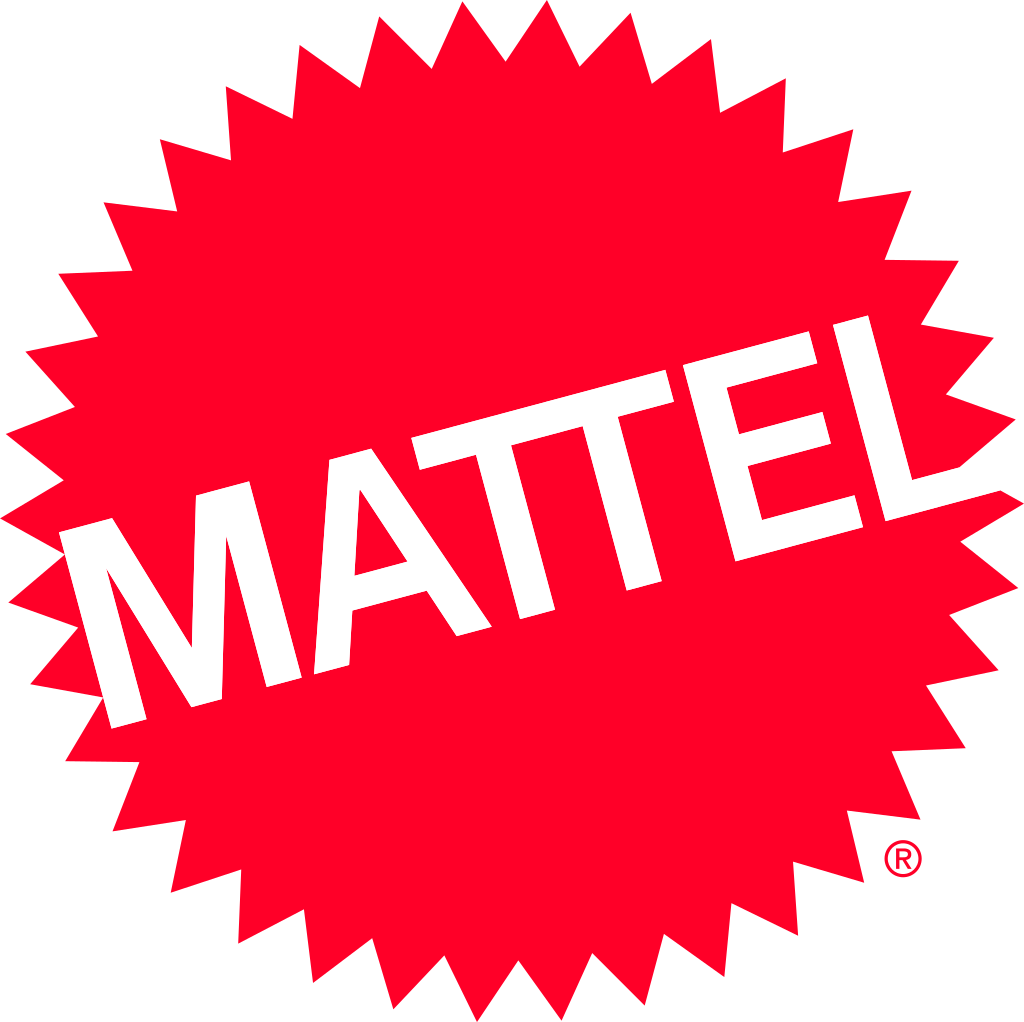
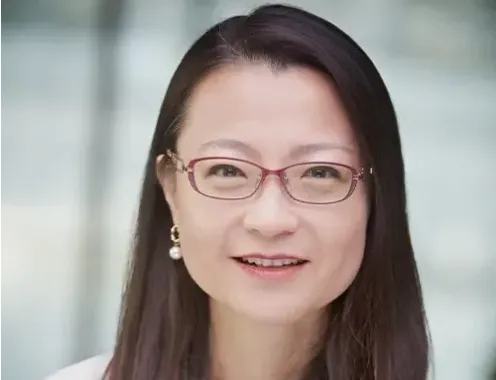
Min Zhu - Chief Financial Officer at Studytube
Min Zhu is the Chief Financial Officer at Studytube in Amsterdam. She started her Finance career at Bentley Systems Europe, before joining Biogen Idec, Philips, ICL Group and WeTransfer. Min is ACCA qualified.
What advice would you offer someone moving to the Netherlands?
Being very open minded and being adaptive. If you are a manager, make sure you give your team the space to share their opinion, make sure they feel their opinions are heard and that you have their best interests at heart - building trust is the key here.
What is your memorable career moment and why?
Being a start-up/scale-up CFO, ultimate responsiblility for all end-to-end business processes, and being the co-pilot of your CEO managing all aspects of the business.
As a CFO in the start-up world, the entire business is looking at you to provide insights/guidance. All of a sudden, it’s not only Finance that is your subject area - the entire business is under your scope. It is completely a paradigm shift. You are the bridge between all the senior executives, and you truly understand how each business component moves with each other and how this is reflected in the business result.
What is also nice about being in the start-up/scale-up world is the decisions you make or any improvements you make. It is an immediately visible, very rewarding experience.
What is the secret to building a strong network?
I think that the secret to building a strong network is the depth. Be selective and invest in building a meaningful relationship over time. Always give first before you ask.
How do you approach Finance? What is your approach for your team and your business? And what attributes led to your success?
Building trust. Being transparent. Give your team a safe circle in which they operate with autonomy.
Thank you to Min for speaking to Hannah Mallia, Head of Executive Finance recruitment in our Finance & Accountancy team in the Netherlands.
Views and opinions contained within our Executive Interviews are those of the interviewee and not views shared by EMEA Recruitment.

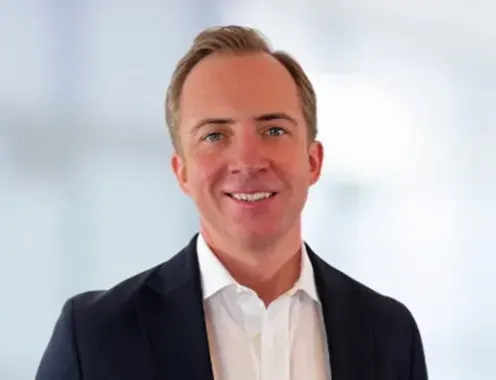
Jonas Slavinskas - Senior Director Group Controlling, Treasury, M&A at Capri Sun Group
Jonas Slavinskas is the Senior Director Group Controlling, Treasury, M&A at Capri Sun Group in Switzerland. He has been with the business for almost five years, having previously spent four years at PepsiCo and four years at Mondelez. Jonas started his Finance career at Kraft Foods Group in Lithuania in 2003.
What does your onboarding/hiring process look like?
It depends on the position and location, but we try to use our own network, because that gives us the opportunity to get someone we know or one of our existing employees knows. We also post the position on LinkedIn sometimes – depending on the seniority or if it’s a confidential project – and professional agencies.
What helps is that Capri Sun is a known brand and a top employer for the fifth year in a row, which obviously helps us to attract top talent in the industry.
We take onboarding very seriously. Even before the new hire starts, we have a checklist of the software and hardware we need to provide; we want to make sure that their working space is ready before the new hire joins.
Then we have an onboarding academy, which is the formal process run by our HR department. The candidate goes through a number of different topics, such as the Capri Sun culture, ways of working and business models.
The onboarding academy is followed by around two weeks of individual sessions with relevant stakeholders. They’re a bit like meet and greet sessions, but it’s also about explaining the stakeholder point of view. This helps the new hire feel welcomed, valued and prepared to do their best work from the very beginning.
What are the three to five key drivers to success in Capri Sun that you watch the most?
We have five values that shape our identity as a company, but - more importantly - they guide us as employees in our day-to-day work.
Not in order of importance:
- Simplicity: We keep things simple, as it gives clarity and speed.
- Integrity: We say what we do and do what we say. We are honest, transparent and respectful to all.
- Entrepreneurship: We think and act as owners, and always demonstrate a can-do attitude. We always put our consumers first and see how we can best compete in the marketplace.
- Excellence: We constantly raise the bar and find more efficient ways of working. We believe in innovation and technology to help us reach our goals.
- Solidarity: We believe we are stronger if we work together. We work hard, but also party hard. We look to eliminate internal barriers and work towards common and aligned goals to reach our global vision.
Is Switzerland a good place to live and why?
It depends a lot on personal taste and circumstances, but – of course - in my view, Switzerland is a great place to live and work. I’ve lived and worked in Switzerland for 12 years.
What’s important to me is that Switzerland is very stable economically and politically, and is safe. Being a father of two, it has a good social system, and relatively low taxes.
It is also in the heart of Europe, meaning everything is quite accessible, and it’s international. There are a lot of international businesses, with a big international community. I, personally, don’t feel any discomfort being a foreigner living in Switzerland.
Another point I’d add is that even in big cities, there is a lot of nature around – you have mountains, lakes, and the Swiss focus on preserving nature or incorporating nature in their daily lives.
What risks have you taken throughout your career and how did they help you get to the level you are at?
That’s a great question. What does it mean to take a risk? For me, it means moving outside of your comfort zone. A few things can happen. One thing, you grow, and your comfort zone expands. That’s the desired outcome.
If I thought I haven’t failed, I would argue that I haven’t taken enough risks. Looking back at my career, there were probably three defining moments where I took certain decisions that got me where I am today.
The first was when I decided to take an expat assignment abroad. I joined Kraft Foods back in my home country and worked there for six years. I reached the Treasurer role for the Baltic region, built my network, and gained a lot of respect. But it became a comfort zone. I took the decision to get international experience.
Something that was meant to be one year to collect international experience and come back turned into 14 years of living and working abroad - and counting. But I don’t regret the decision for a minute; I worked in different countries, met many talented people of different nationalities, which immensely broadened my perspective on work and life in general. My kids were born in Switzerland, so I would call it being a citizen of the globe.
The second was that, after four years working for one of the largest food companies, Mondelez (it was like a second home for me), I decided to leave for one of the largest beverage companies, PepsiCo. It not only allowed me to grow professionally, but it also gave me the comparability angle. It allowed me to objectively compare what is the best-in-class practice across the two different businesses.
The third was my decision to join Capri Sun. After 18 years working for big US multi-national, publicly listed companies, I decided to join a privately-owned company. It turned out to be the best decision of my career. I got used to working for businesses with a lot of support around you, but I wanted to get closer to the business.
I was leading Operational Finance in the Group Controlling function in one of the most severe economic environments. When you’re on a smaller boat and there’s a storm in the sea, you feel it. It’s down to how you navigate with the rest of the crew. It was very tough, but it taught me a lot about resilience and calculated risk.
Most importantly, it taught me a lot about entrepreneurship. You can’t hide in big structures anymore, so you need to drive results and be visible. It’s rewarding, but very daunting; you immediately see how your decisions are reflected in the business results.
But, if you do that successfully, you have immense rewards.
What is the biggest myth about your profession that you would like to debunk?
There are a few about Finance! Probably the universal one is that Finance has long been associated with number crunchers or bean counters. However, a lot has changed recently, and we’ve seen a massive strategic shift in data automation and digitalization, which have taken over repetitive and burdensome tasks.
A Finance professional is now expected to become a business advisor or business partner who can curate the data and provide progressive insights on how to navigate the business and enhance shareholder and stakeholder value creation decisions.
What is your opinion on the four-day work week?
I would respond with two points. The first is that I think it can only work if there is an even playing field; it can only work if it’s universally adopted by all players in the industry. Otherwise, it would be very hard to compete against other businesses who are on different schedules.
The second is my personal answer - I go with the quote, "Don’t count the days, make the days count,” which for me - if you love your job - counting working days somehow loses meaning.
What is the future of Finance?
Hard to say, but clearly there is a lot of buzz going on around artificial intelligence. I think AI will continue to transform Finance on the back of digitalization and automation. Eventually, like I said before, technology will take over repetitive tasks.
I expect the Finance professional role will move towards how to leverage the information that is produced by technology to drive effective decision making across the organization.
I think our soft skills will almost become more valuable, including understanding business processes outside of Finance. Also, how to navigate across the organization, how to network with your business partners, how to communicate and influence. The data will always be there, but you need to be able to leverage the data to drive effective decisions across the organization.
What are the key challenges your business faces regarding sustainability?
It’s a very important question for all businesses in the food and beverages industry. Elimination of plastic and CO2 footprint reduction are the major challenges faced by the food and beverage industry today, and Capri Sun is no exception.
We always say that every challenge is an opportunity. Our vision is to become the most sustainable, number one kids drink in the world.
Over the last few years, we’ve taken many steps to make our product as sustainable as possible. In 2020, we launched our paper straw, which saved over 400,000kg of plastic in 2021. To reduce our CO2 footprint, we localize our production close to consumers.
We are launching the fully recyclable pouch, which will be one of the most sustainable packaging formats in the beverages industry.
How do you approach strategic workforce planning?
It starts with a three-year strategic business plan.
We call it the strategy house, which sits in the heart of our strategic plan. We call it the house because the roof is our vision, and we have three pillars: Growth, cost and cash, and people.
Then we have a fundament on which the three pillars stand, which enables us to win based on our key enablers, like systems, processes, quality, safety, and sustainability.
Under the strategic pillar of people, we address how we will raise capabilities, deliver our business plan, boost our talent pipeline, and create a great place to work. We address all three goals as part of our three-year strategic business plan, which creates the individual work plans and the one-year operational plan.
Thank you to Jonas for speaking to Annie Gosnell, Senior Consultant in our Finance & Accountancy recruitment division in Switzerland.
Views and opinions contained within our Executive Interviews are those of the interviewee and not views shared by EMEA Recruitment.

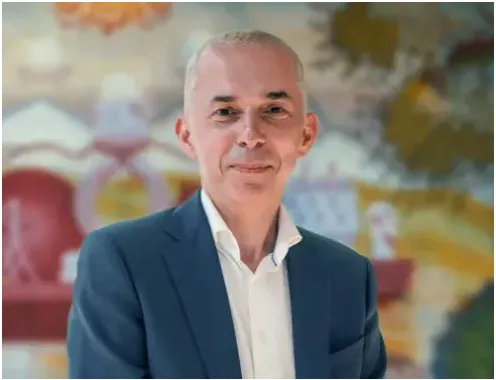
Marcin Skarbon - Global Director Capability Development, Diversity & Inclusion and Talent Acquisition at AkzoNobel
Marcin Skarbon is the Global Director Capability Development, Diversity & Inclusion and Talent Acquisition at AkzoNobel in Amsterdam. He has been with the business for over seven years, having previously spent almost nine years at DSM and six years at ALSTOM.
What’s been the most rewarding part of your career so far?
There are probably two elements. One is related to the career path I’ve chosen, which is more around what I’m working on, and the other one is the people aspect.
If I think about the career path I have chosen, it was a very conscious choice to be an expert in the centre of expertise area, which is part of the Human Resources practice. I think the most rewarding part of being in that area of HR is when you see what you’ve designed come to life in the business and they tell you that it made a difference.
On the people side, I think the most rewarding part is when people voluntarily come over to me and ask for my opinion on something that they’ve developed or that they’re working on, and they say, “If we work with you, it will work better. You will make it better for us.”
I find this extremely humbling, because I never look at myself as someone who knows everything, but the fact that people come and ask for my opinion is quite a rewarding experience.
Thinking about your role as a leader, what would you pick out as being the biggest challenges or the biggest learnings from being in a people leadership role?
One element that I undermined during my career is mental health and employee wellbeing. I took it for granted. But the last three years have proved how fragile humans are.
As a leader, you are not only responsible for the output of your team, but also that there is psychological safety in your team. Leadership is not just about the hard stuff, it’s also about the heart and mind of people you work with.
What I’ve seen recently is that some people have become more comfortable showing their real emotions in the workplace. If you think about it, five to ten years ago, tears in the workplace were quite stigmatised; you were considered a weak person or you were not adjusting to the corporate environment, etc. Now, if you cry, you just show a moment of vulnerability, and the day after nobody remembers it.
Looking back, have you taken any risks within your career and has that helped you get where you are now?
Generally, when I look at my career, I make very conscious choices. I chose the path and I follow that path, which is also how I work on a daily basis. I have never had a problem - even when I was 20-something - packing my things and moving continents, moving countries, trying new things, which was very scary, because you didn’t know what you were signing up for.
Also, nobody’s career is always going to go upward or without big bumps. In 40 years, there’s going to be family situations, relationship circumstances, health challenges or big company changes. Those things will impact your career
I was never afraid to take on a new challenge with the assumption it might not work and, if it doesn’t, you cut the losses and you move on - and it happened to me. I give myself permission to make the wrong choices. We all sometimes roll our eyes over something that’s happening in front of our eyes. Believe me, the one person I roll my eyes over the most is myself. But guess what? We’re just human. Sometimes we get taken with the flow, but it’s okay - it’s what makes us unique.
Was there a manager that stood out for you in the past and what was it about their style that makes them stand out?
There was one that really stood out for me. There were elements of his management style or his personality that I found extremely powerful and had an impact on me.
One was that, when I entered his office or whenever we had interactions, there was never anything fake about him. He was authentic, but also very consistent. I always knew where I stood with him in terms of whether he liked what I was doing, whether there were some suggestions to improve, and whether he had criticism of something I’d done.
I also appreciated the speed of his decision making. He was somebody who was able to decide very quickly, which I found very important, and I knew whether we were going to do something or not and we did not procrastinate.
The last thing was his sense of humour. It was almost self-deprecating humour; he wasn’t positioning himself as the best next thing. It made him very approachable and relatable to me.
I think it had a profound impact on me, because - as I grew older – I noticed I started role modelling some of those behaviours in my life.
Was there a different path you might have taken or something you might go on to do as a second career?
Interestingly enough - and more on the wild side - I dreamed about running a dance club. I always had it in my head. Originally, I thought I would be a teacher, and I was prepared to do my PhD and then actually teach. But the one aspect I would probably lack enormously is the practical application of what I’m teaching.
To a degree, the path I’ve chosen in the centre of expertise on one side gives me the possibility to do theoretical elements, where you design and create, but then I can also see the actual application in a business, and I find this very important. I think the element of teaching and imparting knowledge to other people has stuck with me, because I have mentored many talented people through my career.
Outside of the work environment, what do you do to relax and have fun?
I’m an avid runner. I run five days a week. I put my headset on, turn up the music, I run through the path I choose. For me, it’s the reset button. I get a runner high and I push myself to breaking point, where I almost feel like I’m reborn after it.
On the opposite side, when I reach a maximum stress level - which happens sometimes - I go to a wellness centre with saunas and steam rooms. I like the fact that there’s nothing to hide, but also, it’s the environment where people don’t talk. It’s a silent environment, you’re on your own with your thoughts. I can spend five hours in an environment like this.
Interestingly enough, both are solitary activities. I work with people and talk to people eight to ten hours a day, which is probably why I chose Human Resources in the first place. However, that doesn’t mean it should continue for the remainder of the day. I re-charge when I am alone.
The interesting part is that the virtue of the job I do may lead people to think that I’m a very extroverted person. But, deep inside, I’m quite introverted and those solitary moments of running or being in the wellness centre are very dear to me and help me to re-charge and face whatever life throws at me.
Thank you to Marcin for speaking to Katie Insley, Associate Director in our HR recruitment team in the Netherlands.
Views and opinions contained within our Executive Interviews are those of the interviewee and not views shared by EMEA Recruitment.








You can also use your social account to sign in. First you need to:
Accept Terms & Conditions And Privacy Policy